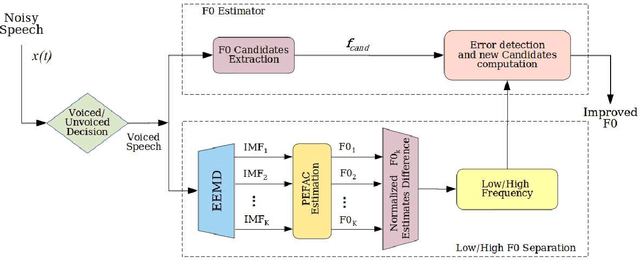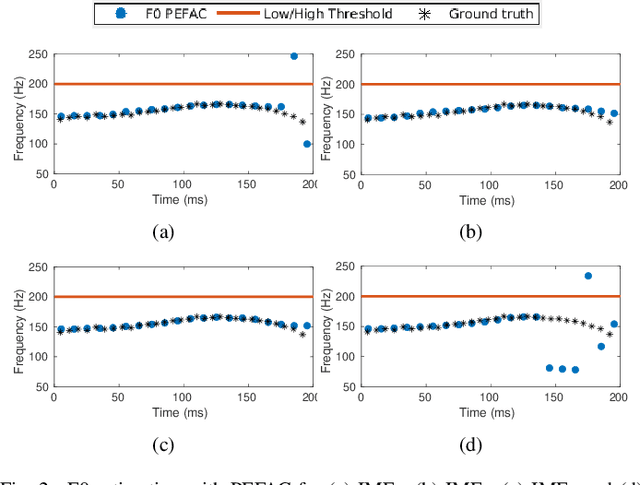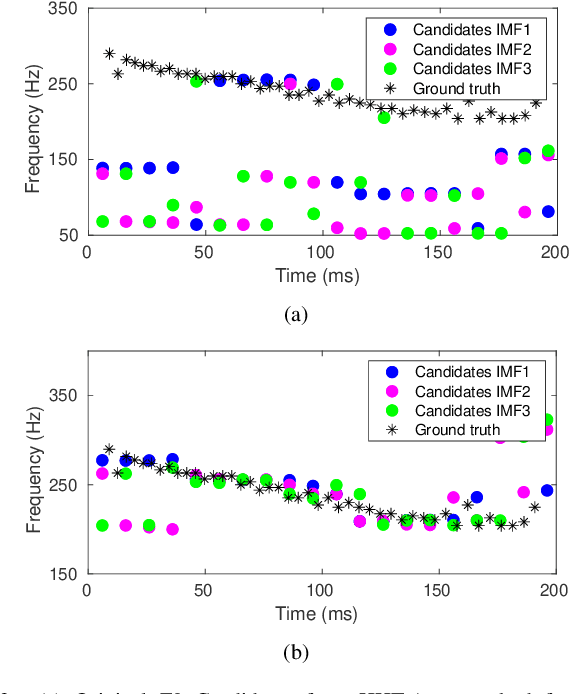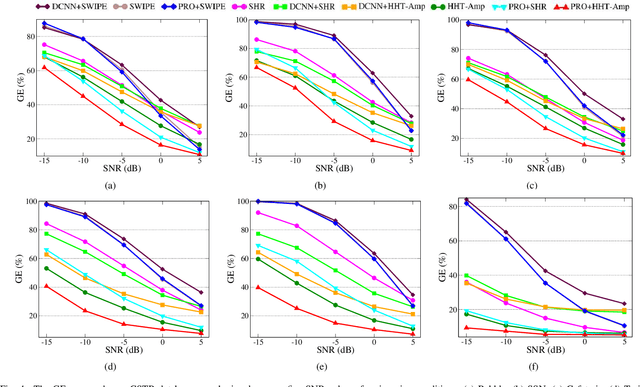Noisy Speech Based Temporal Decomposition to Improve Fundamental Frequency Estimation
Paper and Code
Dec 18, 2021



This paper introduces a novel method to separate noisy speech into low or high frequency frames, in order to improve fundamental frequency (F0) estimation accuracy. In this proposal, the target signal is analyzed by means of the ensemble empirical mode decomposition. Next, the pitch information is extracted from the first decomposition modes. This feature indicates the frequency region where the F0 of speech should be located, thus separating the frames into low-frequency (LF) or high-frequency (HF). The separation is applied to correct candidates extracted from a conventional fundamental frequency detection method, and hence improving the accuracy of F0 estimate. The proposed method is evaluated in experiments with CSTR and TIMIT databases, considering six acoustic noises under various signal-to-noise ratios. A pitch enhancement algorithm is adopted as baseline in the evaluation analysis considering three conventional estimators. Results show that the proposed method outperforms the competing strategies, in terms of low/high frequency separation accuracy. Moreover, the performance metrics of the F0 estimation techniques show that the novel solution is able to better improve F0 detection accuracy when compared to competitive approaches under different noisy conditions.
 Add to Chrome
Add to Chrome Add to Firefox
Add to Firefox Add to Edge
Add to Edge